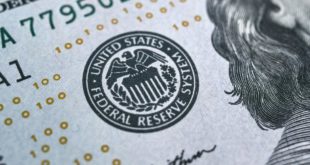This past weekend, the world witnessed absolute barbarism play out as Hamas agents brutally targeted Israeli civilians. The State of Israel, suffering from a historic failure to protect its residents, has predictably responded with major military operations in the Gaza strip. The result is a growing regional conflict fueled by historic feuds beyond the scale of traditional geopolitical considerations. Add to this the ongoing war in Ukraine, a less-talked-about...
Read More »The Central Bank Policy Interest Rate vs the Natural Rate
While central banks use administered interest rates in hopes of emulating the natural rate, these efforts are always going to fail. Without free markets, there is no natural rate. Original Article: The Central Bank Policy Interest Rate vs the Natural Rate [embedded content] Tags: Featured,newsletter
Read More »How the Fed Undermines Prosperity
The term “roundabout” is not normally associated with efficiency, unless you’re an economist. Yet roundabout methods—when applied to production—are the key to prosperity. Eugen von Böhm-Bawerk, the great Austrian economist of the late nineteenth and early twentieth centuries, provided examples illustrating how this idea works. Consider a farmer whose source of drinking water is some distance from his house. Whenever he gets thirsty, he can go to the spring and drink...
Read More »Greenback Consolidates Ahead of September CPI
Overview: The dollar is mixed against the G10 currencies. It is confined to narrow ranges ahead of today's CPI report. The Russian ruble is the strongest of the emerging market currencies following the imposition of new capital controls, forcing many exporters to repatriate their foreign earnings. After posting a key upside reversal at the end of last week, gold continues to recover. It nearly $1883 so far today, the best level in more than two weeks. November WTI...
Read More »Dollarization Puts Foreign Economies at the Mercy of the US Regime
Some free-market advocates are pushing for dollarization in Argentina. But the devastating US sanctions against Panama in 1989 show us how dollarization helps the US exercise more hegemonic power over foreign economies. Original Article: Dollarization Puts Foreign Economies at the Mercy of the US Regime [embedded content]...
Read More »The Regime Plans More for Us Than Just Hillary Clinton’s “Deprogramming” Demands
This week, Hillary Clinton publicly proposed “formal deprogramming” for MAGA enthusiasts, piling on a repeated President Biden theme of trying to deal with “an extremist movement that does not share the basic beliefs of our democracy. The MAGA movement.” The nation recently discovered that the FBI has a new “MAGA Extremist” category. All this hard work by government is aimed at “preserving democracy.” Clinton is particularly concerned about the small extremist “tail”...
Read More »Why Must Supply Precede Demand? Understanding Economic Foundations
In the market economy, wealth generators do not produce everything for their own consumption. Part of their production is used in exchange for the produce of other producers. Hence, in the market economy, production precedes consumption. This means that something is exchanged for something else. This also means that an increase in the production of goods and services sets in motion an increase in the demand for goods and services. According to David Ricardo, No man...
Read More »UBS clash at Supreme Court tests whistleblower suit rules
The US Supreme Court considered reinstating a $900,000 (CHF810,000) jury verdict won by a fired UBS Group research strategist in a case that could make it easier for whistleblowers to win suits claiming retaliation under a federal investor-protection law. Share Facebook Twitter E-mail Print Copy link UBS contends that...
Read More »The Left Is Now Telling Us (Ukrainian) Nazis Aren’t So Bad After All
Members of the Canadian Parliament recently applauded a Ukrainian member of the Nazi Waffen-SS during World War II. Apparently, it's now okay to be a Nazi so long as you're fighting the Russians. Original Article: The Left Is Now Telling Us (Ukrainian) Nazis Aren't So Bad After All [embedded content] Tags:...
Read More »Is It Just War or Unjustified Slaughter of Innocents?
Saturday the world was rocked by the outbreak of war in southern Israel as Hamas fighters crossed out of Gaza, taking hostages and killing Israeli civilians. The political leader of Hamas says the attacks were in response to the Israeli treatment of Palestinians at the al-Aqsa Mosque last week. But other reports indicate that the attack was planned for weeks with the help of the Iranian government and was meant to mark the fiftieth anniversary of the Yom Kippur War....
Read More » Swiss Economicblogs.org
Swiss Economicblogs.org






